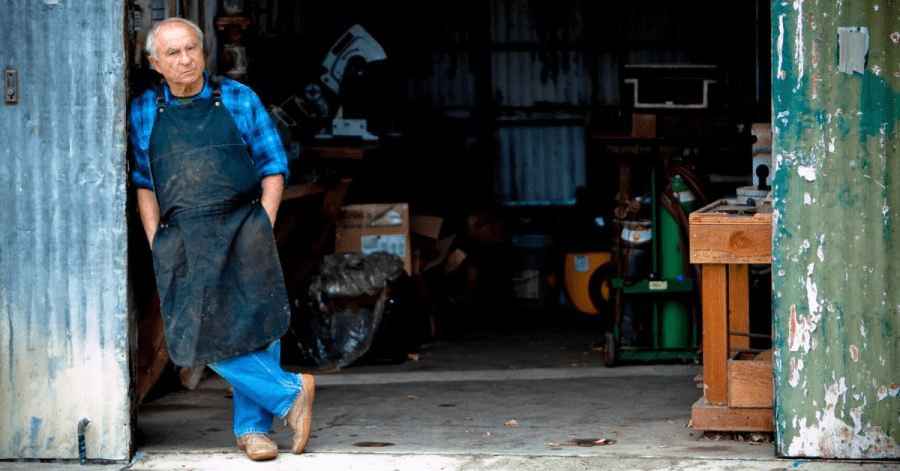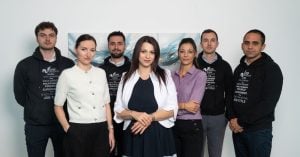In a rare move for the corporate world, the founder of Patagonia is giving away the $3 billion business he launched almost 50 years ago in order to make sure its profits contribute to fighting climate change.
Yvon Chouinard is transferring the ownership of the California-based, outdoor apparel and equipment company to two non-profit organizations that will direct its annual profits of around $100 million towards activities aimed to protect nature and biodiversity, support communities, and tackle the environmental crisis.
The announcement comes at a time when, according to the ecological critique of capitalism, the dominating economic thesis is facing the need of a paradigm shift, should we have any chance to tackle the current environmental crisis and avoid a future collapse.
Ideas such as de-growth and the circular economy have been proposed as alternatives to the current models of consumption and production. However, few frontrunners of a new, green economy have emerged from the corporate trenches so far.
With that in mind, The Recursive looked at the Patagonia company history and drew five lessons that business leaders can get about building a resilient and responsible company, fit for the new economy. Let’s take a walk down to Patagonia’s beginnings as a mountaineer’s dream to make better rock climbing tools.
#1 Resources don’t matter as much as resourcefulness does
Yvon Chouinard bought the first tools he would use to lay the foundation of the now multi-billion valued company from a junkyard. At 14, he fell in love with climbing and later moved to Yosemite with his Sierra Club friends to learn how to climb its big walls. Needing gear for his climbs, Yvon taught himself how to blacksmith using second-hand tools. His first chrome-molybdenum steel pitons soon became a hit among his friends, making him an accidental entrepreneur. Later in 1965, Yvon went into partnership with fellow climber and friend Tom Frost, starting Chouinard Equipment, a key step in the Patagonia company history.
For entrepreneurs with no money and no experience, the lack of resources can seem an insurmountable challenge. Yet as Yvon’s story shows, success rather comes down to one’s resourcefulness. Finding creative and smart ways to solve problems is at the core of true entrepreneurship.
#2 Don’t be afraid to pivot
Five years after launch, Chouinard Equipment became the largest supplier of climbing hardware in the US. Nevertheless, it had also become an “environmental villain” – the hammering of pitons in and out of rocks was damaging the mountains. So came the first pivoting moment for Yvon and Tom, who decided to minimize the piton business, and found an alternative in aluminum chocks, which could be wedged by hand.
Innovations did not stop there. The company began selling clothes fit for climbing, which were helping the marginally profitable hardware business. They started with selling all sorts of functional, yet eccentric items, from rugby shirts from England, to polyurethane rain cagoules from Scotland, and to hand-knit reversible beanies from Boulder.
Once in the game of outdoor apparel, the team began searching for ways to improve the traditional clothing used by the mountaineering community. They found inspiration with the North Atlantic fishermen, whose staple synthetic pile sweater turned out to be perfectly suited for alpine conditions. It insulated when wet, but it also dried fast, which made it a success and gradually started replacing cotton and wool.
The company further explored polypropylene and eventually polyester as fabrics for its underwear products. Along the Patagonia company history, the business never stopped adapting and innovating in order to stay relevant for its community, an important lesson entrepreneurs should do well to remember.
#3 Build a team that stands by the company’s values
At the beginning of the 1990s, Patagonia was one of the fastest-growing privately held companies. Yet the 1991 recession affected the company’s sales and its access to borrowed capital, which eventually led to the layoff of 20% of the staff. It also ensured a process of reflection on the kind of business they were looking to build.
The company fought to keep a friendly, tolerant, and relaxed culture, to the point that employees could even stay barefooted. It encouraged recreational, in-nature activities at lunch and sponsored ski and climbing trips for employees, living by its ethos. It started serving healthy, mostly organic food, and opened an on-site child care center.
Today, Patagonia is specific about its hiring process, avoiding adverts and instead seeking people that would suit the company’s collaborative culture through an informal network of friends, colleagues, and business associates. They also look for people with a real interest in outdoor activities, because while some business skills can be taught, passion cannot, and this later reflects in everything the company puts forward.
#4 Look for ways to bring a positive impact, starting close to home
The company was still relatively small when the leadership team became slowly aware of the environmental crisis ensuing, its impact on the local communities, and the contribution of human activities. In one particular story in the Patagonia company history, the local river in its home city, Ventura, was saved from being taken over by a development plan by grassroots efforts. This inspired the company’s ensuing activism and belief in humans’ ability to restore degraded habitats.
From then onwards, the company started donating regularly to small groups working to save or restore habitats, and has kept its commitment ever since, upping it to 1% of annual sales, profit or not. They have organized national educational environmental campaigns, supported projects seeking to preserve ecosystems, organized a biannual conference to teach marketing and publicity skills to their partners, and published several books.
#5 Walk the talk
The apparel industry is well-known for its resource-heavy and obscure supply chains that stretch across the globe in a race to the bottom for lower costs and bigger profits. For Patagonia, walking the talk meant taking a look at their own backyard and actively taking measures to reduce their contribution to the environmental damage they were condemning.
A first step for any business aiming to become responsible is to analyze and report its impact results to the public, like Patagonia does with the Footprint Chronicles since 2007. Impact assessments helped the company develop recycled polyester from soda bottles, transition to 100% organic cotton, start a used clothing and repair program and encourage circularity, and reduce energy use in its distribution centers.
As a result of its efforts to maintain a fiduciary responsibility towards a wider pool of stakeholders – including the wider community and the environment, Patagonia obtained recognition as a California benefit corporation, a Certified B Corporation, and a Fair Trade partner.
In 2013, a corporate venture capital fund, Tin Shed Ventures, was launched by Yvon Chouinard to support startup companies that seek equal returns on the financial, social, and environmental fronts. So far, the fund invested in innovations such as re-commerce platforms and low-impact materials.
Later on, the company also made it possible for its employees to support environmental action groups through the Patagonia Action Works program.
More recently, as the pressures of mitigating climate change intensified, the company launched Patagonia Provisions, a spin-off aiming to make organic and regenerative goods that can help solve specific environmental problems, through, for instance, carbon sequestration.
Already, the company was doing more than many others in the industry, yet for the owners, it was not enough. As Yvon Chouinard shares in his letter, “we needed to find a way to put more money into fighting the crisis, while keeping the company’s values intact”. For Patagonia, the answer to “going purpose” was to avoid “going public” and instead pass on its stock to organizations that will direct its wealth henceforth to protecting the wealth of nature.








